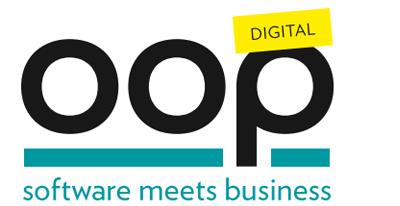- Deutsch
- Contact
- Newsletter

Conference Program
Please note:
On this site, there is only displayed the English speaking sessions of the OOP 2022 Digital. You can find all conference sessions, including the German speaking ones, here.
The times given in the conference program of OOP 2022 Digital correspond to Central European Time (CET).
By clicking on "EVENT MERKEN" within the lecture descriptions you can arrange your own schedule. You can view your schedule at any time using the icon in the upper right corner.
Thema: Cloud
- Dienstag
01.02. - Mittwoch
02.02. - Donnerstag
03.02.
While Rust is typically pitched as systems programming language, it is equally adept at application development thanks to its high level features and great tooling. In addition to increased performance, native code has the advantage that it can easily be reused across different system components, an advantage even more pronounced in polyglot environments. In this talk, we would like to present our experience of using Rust to write core components in such a polyglot system.
Target Audience:…
Due to the capabilities of Kubernetes, the usage of patterns rises to solve complex questions, but causing often confusion and unnecessary implementations. This talk intends to show what are the right scenarios for and for which cases another pattern is more suitable.
In this talk, Max will introduce you to various patterns, often misused by running applications and services within Kubernetes. The focus will be on structural patterns like Sidecars and Ambassadors as well as more advanced patterns…
In this talk, we will give an overview about all the different aspects that affect climate change from the software engineering perspective and discuss a number of concrete actions that every software engineer can take (and should keep in mind day-in day-out) to help fight climate change. During the talk, we will not only provide an overview of the landscape, but also cover topics in more depth and discuss the challenges that come with them.
Target Audience: Architects, Developers, Project…
In 2020, the three big cloud providers signed us all up for a revolution in the way we write and operate software. The deadline is 2030. Are you ready?
Target Audience: General techie. This works for all
Prerequisites: None
Level: Advanced
Extended Abstract
In 2020, Google Cloud, AWS, and Azure all committed to be carbon zero by 2030. It's the incredibly tough goal of zero emitted carbon as a result for operating our applications and services. They can't do it alone. AWS says "we optimize for…
